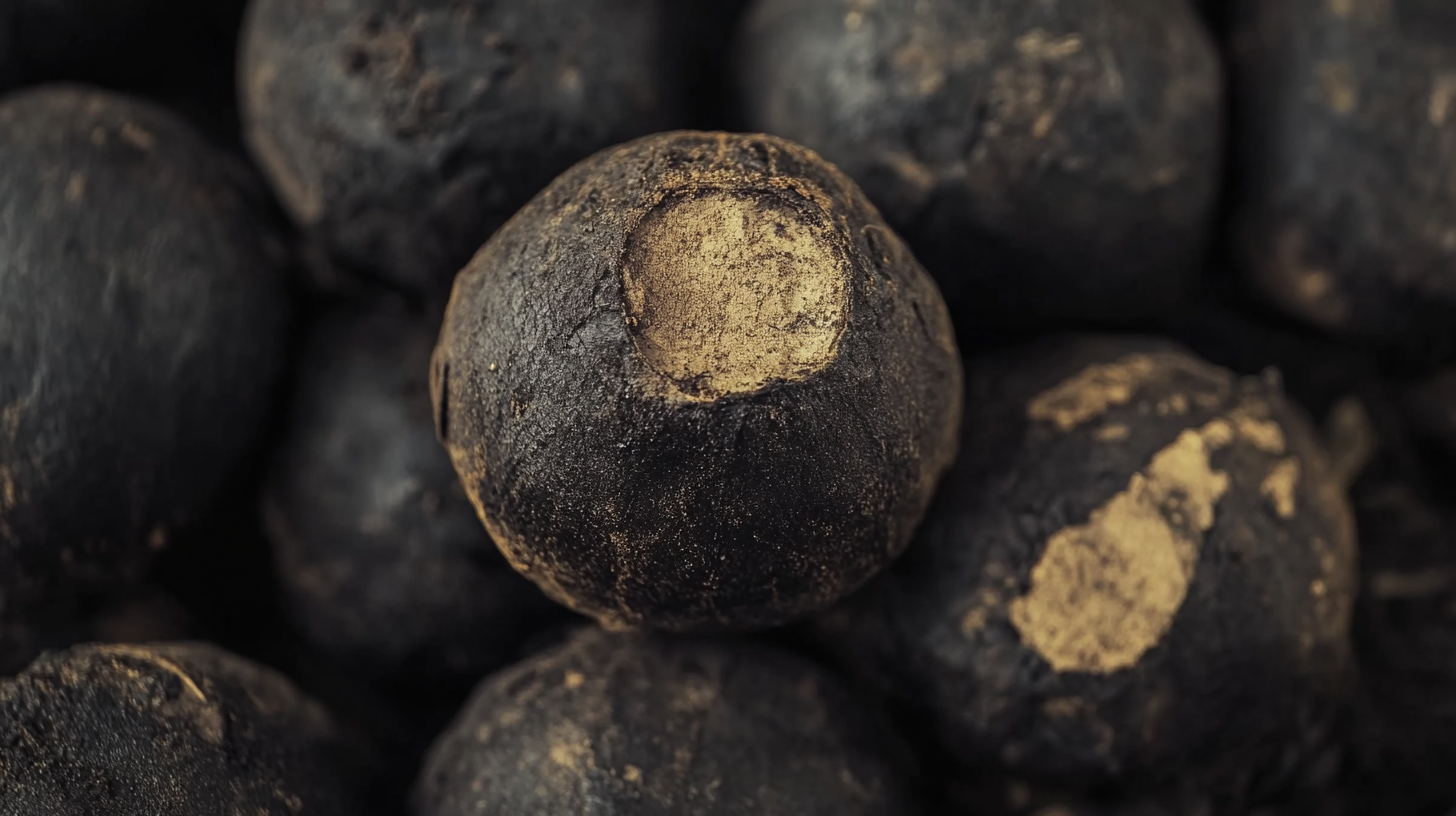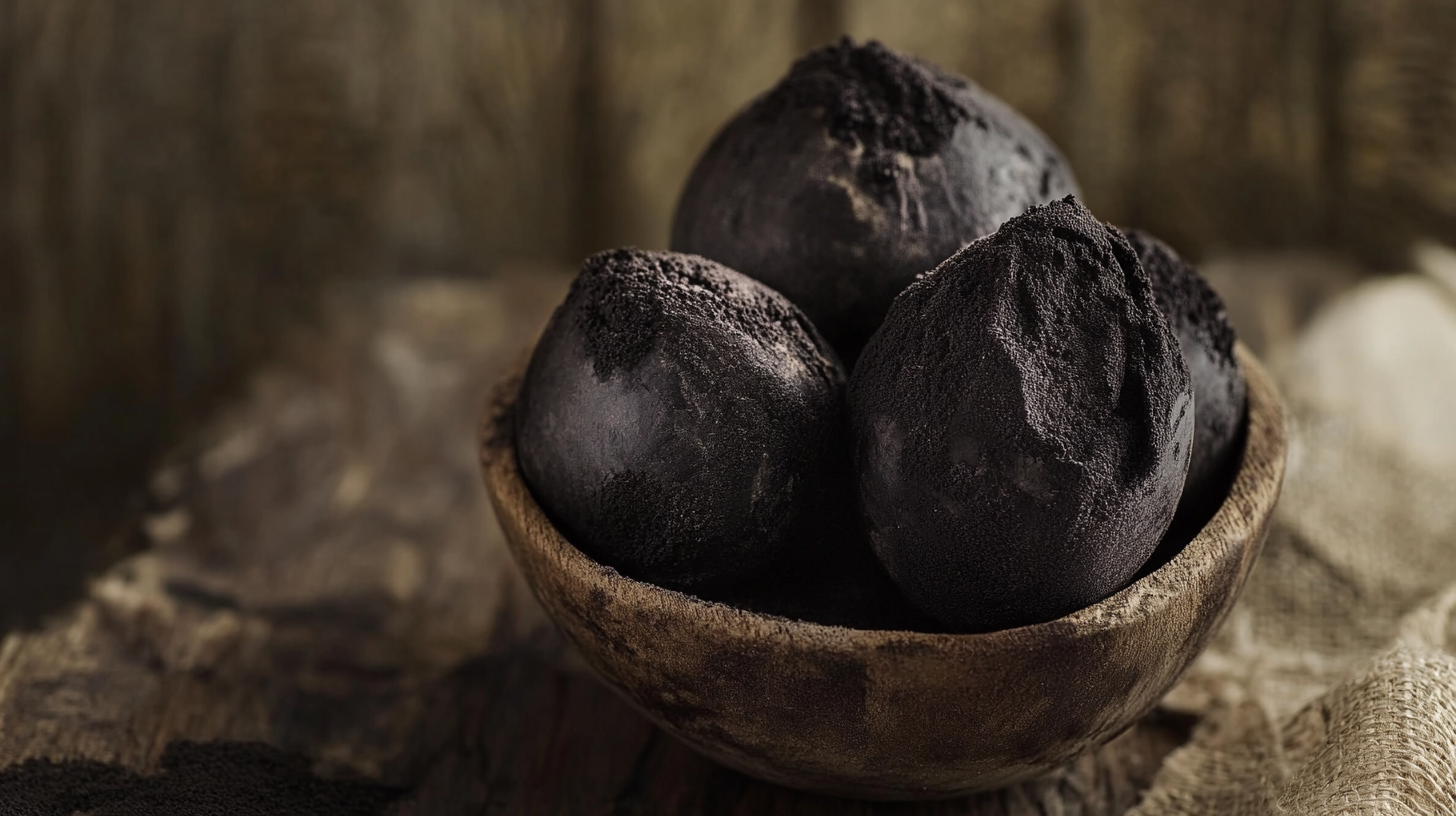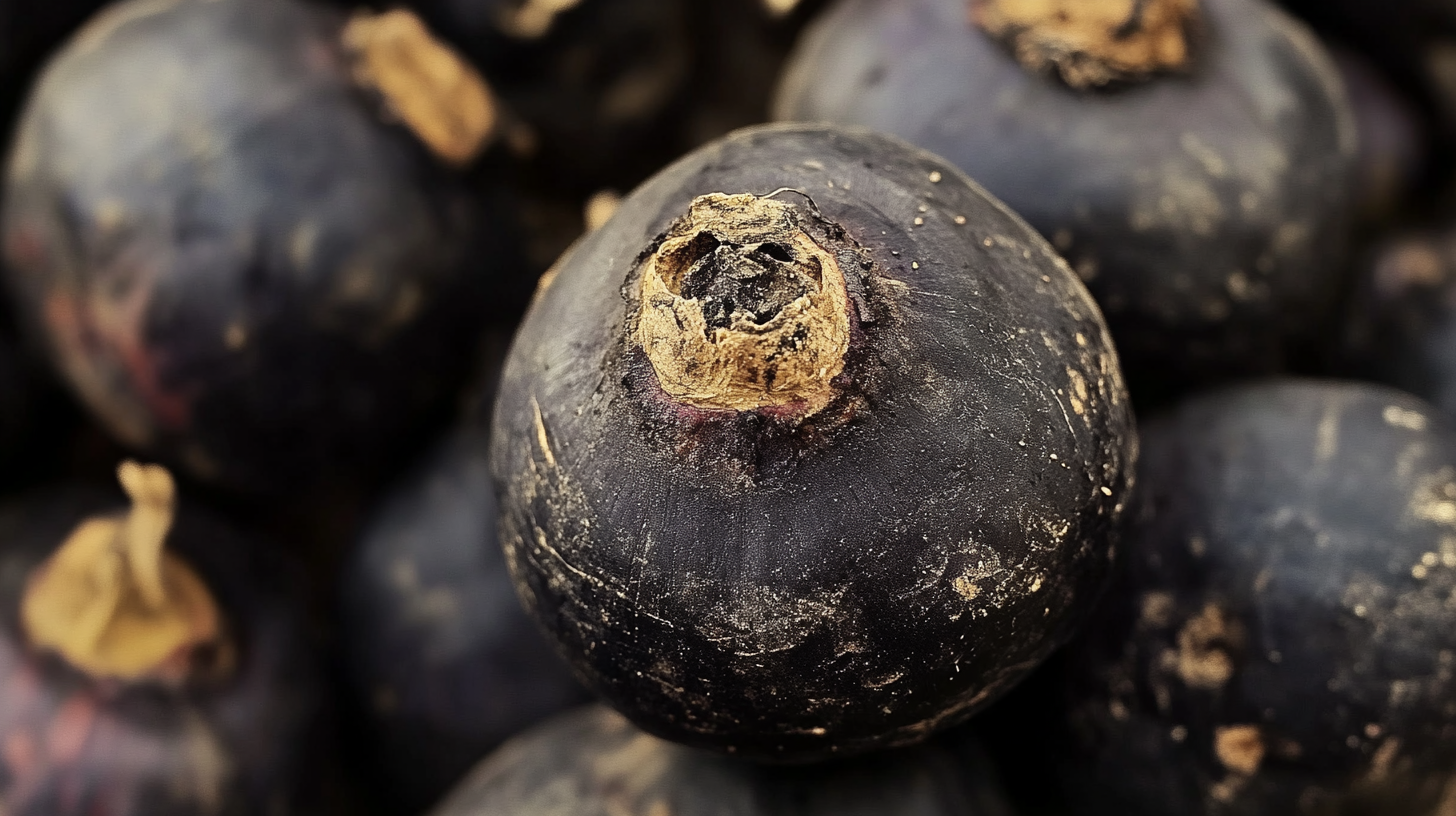
-
Home
-
Products
-
About US
-
FAQ
-
News
-
Tips
-
Contact Us
Leave Your Message
- Phone
- E-mail
- WhatsApp
- WA Business



As the demand for health supplements grows globally, the spotlight on Black Maca, a powerful adaptogen native to the Peruvian Andes, has intensified. According to a market research report by Grand View Research, the global maca market is projected to reach USD 50.26 million by 2025, with a significant share attributed to the efficacy of Black Maca in enhancing energy, stamina, and fertility. However, with this rising interest comes the necessity for stringent global manufacturing standards and import-export certifications to ensure product quality and safety. The complexity of these certifications varies across different regions, highlighting the importance of compliance with international regulations. This blog explores the critical manufacturing standards relevant to Black Maca products, elucidating the benefits of adhering to these standards for both manufacturers and consumers in the burgeoning health supplement market.

In understanding global manufacturing standards for the best black maca products, it is essential to consider the evolving landscape of regulations and certifications that govern the production process. A comprehensive overview reveals a growing emphasis on sustainability and traceability. Manufacturers are increasingly expected to adopt practices that minimize environmental impact, akin to trends observed in other industries, such as the shift toward decarbonization in electric vehicle battery production. This is indicative of a larger movement within global manufacturing towards sustainable practices and supply chain transparency.

The implementation of rigorous manufacturing standards not only ensures product quality but also builds consumer trust. As more consumers demand ethically sourced and environmentally friendly products, manufacturers of black maca must align their processes with these expectations. Compliance with international standards, such as ISO certifications, can further enhance credibility in the competitive market. Innovations in manufacturing technologies are pivotal, pushing companies toward adopting circular economy principles that promote resource efficiency and waste reduction. As the demand for high-quality black maca continues to rise, adhering to such standards will be crucial for manufacturers striving for excellence and sustainability in their practices.
Quality control is a critical aspect of black maca production, ensuring that the final product meets the highest standards for safety and efficacy. Black maca, known for its potential health benefits, must be harvested and processed under stringent regulations to preserve its nutritional properties. Farmers and producers are increasingly adhering to global manufacturing standards, which not only enhance product quality but also bolster consumer trust.
To ensure you are choosing the best black maca products, look for certifications such as organic or GMP (Good Manufacturing Practices). These designations indicate that the product has been produced in a regulated environment, meeting specific quality benchmarks. Additionally, check for third-party testing results; reputable brands often provide transparent information about their quality assurance processes.
Another tip is to examine the sourcing and production methods of the maca. High-quality black maca is typically grown at high altitudes in the Andes, where the climate contributes to its potency. Knowing the origin can help you make informed choices about the products you consume, ultimately leading to better health outcomes.
| Quality Control Aspect | Standard Measurement | Importance | Frequency of Testing |
|---|---|---|---|
| Product Purity | Minimum 98% Pure | Ensures health benefits | Batch-wise testing |
| Microbial Contamination | Negative for pathogens | Ensures safety for consumption | Every production run |
| Heavy Metal Testing | Below regulatory limits | Prevents toxicity | Every batch |
| Nutritional Content | As per nutrition label | Confirms health claims | Annually |
| Processing Conditions | Compliant with GMP | Ensures product integrity | Continuous monitoring |
The global market for black maca products is experiencing significant growth, driven by rising demand in key regions such as North America, Europe, and Asia. According to a recent report by Market Research Future, the global maca market is projected to expand at a compound annual growth rate (CAGR) of 6.5% from 2020 to 2025. This growth is attributed to the increasing awareness of health benefits associated with black maca, including its potential to boost energy, improve stamina, and enhance sexual health. As consumer preferences shift towards natural and organic products, manufacturers are adapting their strategies to meet these demands.
In addition to shifting consumer behavior, advancements in manufacturing processes play a crucial role in shaping the black maca market. Industry players are investing in sustainable cultivation practices and adhering to international quality standards. For instance, the adoption of Good Manufacturing Practices (GMP) and Hazard Analysis Critical Control Point (HACCP) protocols is becoming increasingly prevalent among reputable manufacturers. This trend not only ensures product quality but also aligns with the consumer demand for transparency and traceability in the supply chain. With these developments, the black maca industry is poised for robust growth, responding effectively to both market trends and regulatory requirements by 2025.
Navigating the legal landscape for black maca products can be a complex endeavor for manufacturers seeking regulatory compliance. Various global standards govern the production, labeling, and marketing of herbal supplements, with organizations such as the Food and Drug Administration (FDA) in the United States and the European Food Safety Authority (EFSA) in Europe playing pivotal roles. According to a report by Research and Markets, the global herbal supplements market was valued at approximately $129.5 billion in 2021, indicating a growing demand that necessitates compliance with strict regulatory frameworks to ensure consumer safety and product efficacy.
Regulatory hurdles vary significantly from one region to another. For example, in the United States, black maca products are categorized as dietary supplements and must adhere to the Dietary Supplement Health and Education Act (DSHEA), which dictates that all labeled claims must be substantiated. Meanwhile, in Europe, the Novel Food Regulation requires that any new food product, including black maca, undergo a pre-market safety assessment before being approved for sale. Manufacturers must stay informed about these regulations and ensure that their sourcing, production methods, and marketing are aligned with the applicable laws to avoid potential legal repercussions and maintain their competitive edge in the market.
 In the realm of natural health products, black maca has garnered attention for its numerous benefits, and understanding sustainable practices in its farming and production is crucial. Black maca, a root vegetable native to the Peruvian Andes, thrives in high-altitude conditions and is traditionally cultivated by local farmers. These farmers employ sustainable agricultural practices that not only preserve the environment but also enhance the quality of the crop. Techniques such as crop rotation, organic fertilization, and minimizing the use of harmful pesticides contribute to a healthier ecosystem, ensuring that the land remains fertile for future generations.
In the realm of natural health products, black maca has garnered attention for its numerous benefits, and understanding sustainable practices in its farming and production is crucial. Black maca, a root vegetable native to the Peruvian Andes, thrives in high-altitude conditions and is traditionally cultivated by local farmers. These farmers employ sustainable agricultural practices that not only preserve the environment but also enhance the quality of the crop. Techniques such as crop rotation, organic fertilization, and minimizing the use of harmful pesticides contribute to a healthier ecosystem, ensuring that the land remains fertile for future generations.
Moreover, many producers are now implementing practices that promote biodiversity and soil health. Intercropping with other native crops not only enriches the soil but also helps manage pests naturally. Additionally, the use of permaculture principles is becoming more widespread, allowing farmers to create self-sustaining agricultural systems. This approach aligns with global manufacturing standards that demand environmental responsibility, providing consumers with black maca products that are not only effective but also ethically sourced. As awareness grows, consumers are encouraged to choose products that reflect these sustainable practices, supporting a greener future for black maca farming.